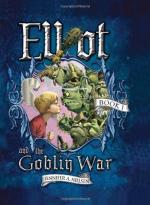Whenever he reached this part of the story, his mother would go off into a fit of uncontrollable laughter which left her helpless and crumpled up in a heap upon the nearest chair. Her laugh was very infectious; it began with a low, mirthful ripple, well down in the throat, and rose in rapid leaps of musical joy till it had traveled a whole octave of bubbling happy sounds, when it culminated in a peal of double forte shakes and trills, that made it a joy to hear, and finally it died out in an “Oh, dear me! What a callan Mansie was!”
As Robert approached manhood, he took more and more to the moors, wandering alone among the haunts of the whaup and other moor birds, wrestling with problems to which older heads never gave a thought, trying to understand life and to build from his heart and experience something that would be satisfying. Silent, thoughtful, “strange” to the neighbors, a problem to everyone, but a bigger one to himself, life staggered him and appalled his soul.
Earnestly he worked and tested his thought against the thought of others, sturdily refusing everything which did not ring true and meet his standard. Old religious conceptions, the orthodoxy of his kith and kin, were fast tested in the crucible of his mind and flung aside as worthless. The idea of Hell and the old Morrisonian notion of the Hereafter appeared crude and barbarous. His father’s fate and the condition of the family left to welter in poverty, the cruelty of life as it presented itself to the great mass of the working class, could not be reconciled with the Church’s teaching of an all-loving and omniscient Father.
With the audacity of youth, he felt that he could easily have constructed a better universe. He felt that Hell could have no terrors for people condemned to such hardship and suffering as he saw around him. Life was colorless for them; stinted of pleasure and beauty, with merely the joys of the “gill-stoup” on a Saturday night at the local “store” to look forward to, there was in it no real satisfaction either for the body or the mind. Would he, indeed, have to wait till after death before knowing anything of real happiness or comfort? His mind refused to accept this doctrine so frequently expounded to working class congregations by ministers, who were themselves comparatively well endowed with “treasures upon earth.”
Life was good, life was glorious if only it could be made as he dreamed it. This fair earth need be no vale of tears. There were the blue skies, the white tapestry of cloudland ever varying; there was the wind upon his face and the sweet rain; there was the purl of mountain brook, the graceful sweep of the river, the smile of the flowers, the songs of the birds; the golden splendor of the day and the silver radiance of the night.
But above and beyond all there was an ever-increasing love of his fellows, there were noble women like his mother to reverence, and there were sweet children to cherish. Surely life was good, and never was meant to be the mean, sordid thing that too often was the lot of people like himself. Heaven could and should be realized here and now. At twenty, he finished by accepting Humanity as it is, to be understood and loved, to be served, and, if necessary, to die for it.




